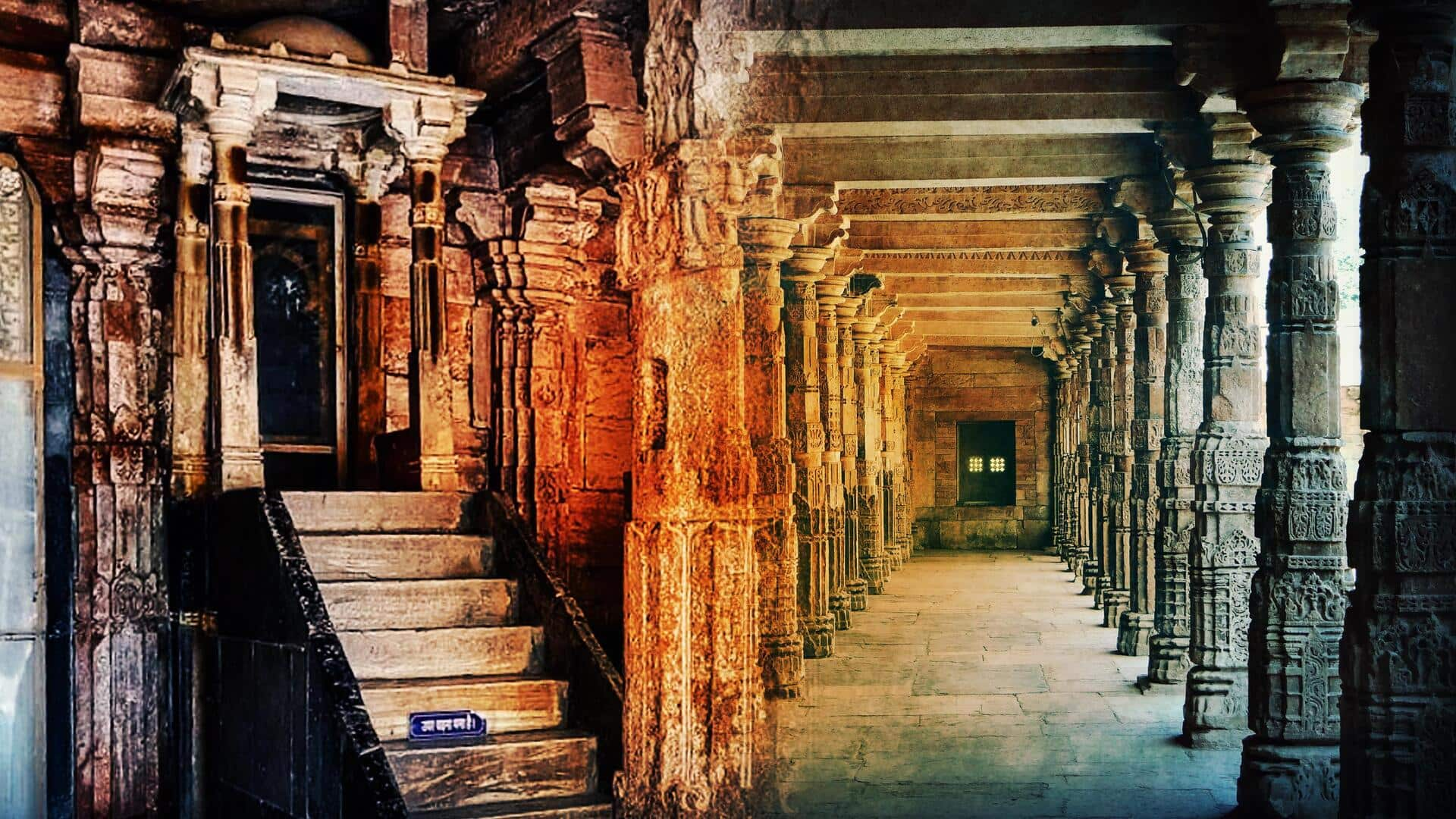
Madhya Pradesh HC orders ASI survey of contested Bhojshala complex
What's the story
The Madhya Pradesh High Court, on Monday, instructed the Archaeological Survey of India (ASI) to perform a scientific examination of the Bhojshala complex in Dhar district. The court observed that the nature and character of the 11th-century structure needed to be "demystified and freed from the shackles of confusion." At present, the Bhojshala complex is considered a temple dedicated to Vagdevi (Goddess Saraswati) by Hindus, while the Muslim community refers to it as the Kamal Maula Mosque.
Context
Why does this story matter?
The high court's directive came in response to a petition filed by Supreme Court lawyer Vishnu Shankar Jain on behalf of the Hindi Front for Justice. As per the current arrangement—put in place by the ASI on April 7, 2003—Hindus perform puja in the medieval-era Bhojshala premises on Tuesdays, while Muslims offer namaz in the complex on Fridays. Notably, a similar survey was ordered to be conducted at Varanasi's Gyanvapi Mosque by Allahabad HC last year.
HC verdict
HC observes ASI's constitutional and statutory obligations
A division bench of the high court—consisting of Justices S A Dharmadhikari and Devnarayan Mishra—noted that the ASI has "constitutional as well as statutory obligations" to conduct a scientific survey and study of the shared premises. It ordered the formation of a five-member ASI team, which would submit their report in not more than five months. The next hearing of the case is scheduled for April 29.
Twitter Post
Advocate Jain explains the court's order
#WATCH | Noida, UP | On the MP High Court's verdict that allows ASI survey at Bhojshala temple, Advocate Vishnu Shankar Jain says, "...Today, the High Court has ordered for the ASI survey. The court has said to form a five-member committee of ASI members to be headed by the… pic.twitter.com/NDj0g2pZU8
— ANI (@ANI) March 11, 2024
Petition
Khilji constructed the mosque after demolishing temple: Petition
In their plea, the Hindu petitioners argued that Kamal Maula Mosque was constructed during the reign of Alauddin Khilji between the 13th and 14th centuries. They said that Khilji and his soldiers constructed the mosque after "destroying and dismantling ancient structures of previously constructed Hindu temples." As per the court order, the ASI will now conduct a detailed scientific investigation using carbon dating method to ascertain the age and life of various structures both above and beneath the ground.